
It's been more than a year since Russia invaded Ukraine and the resultant conflict emerged as the intricate interplay of geopolitics, economy, diplomacy and strategic maneuverings.
The precipitation of the Russia-Ukraine conflict was an inadvertent assault on the developing world which was left with picking pieces.
Ironically, Ukraine incredibly emerged as a defiant sovereign state, demonstrating the ability to coerce the West for more aid and standing resolute in the face of round-the-clock Russian bombardment.
But the developing world endured the detrimental heat of the Ukrainian theatre of war. Pakistan is one of the countries whose fortunes were drastically impacted by the Ukraine quagmire. The country’s geo-strategic location renders it vulnerable to global shockwaves and even before the war, burgeoning poly-crises were taking a toll on the lives of the average Pakistani.
The colossal politico-macroeconomic turmoil and hyperinflation were amplified by geopolitical showdown. Energy-importing countries were doomed to soaring commodity prices amid Europe’s scramble for Liquefied Natural Gas (LNG).
Pakistan was left prone to power outages, fuel shortages and massive inflation as its dwindling foreign reserves hampered its ability to secure LNG cargoes. Russia and Ukraine have been among the top exporters of agricultural products but this conflict disrupted food supply chains and galvanized food insecurity in the developing world.
The Food and Agriculture Organization’s 2022 annual food price index rose to 14.3% which is 46% higher than the 2020 food price index, reflecting 222 million people worldwide suffering from food insecurity. Disruption in the supply of staples critically affected the food security of Pakistan which was already reeling from devastating floods.
Another significant reason behind unbridled inflation in Pakistan was interest rates hike in global central banks as US Federal Reserve raised its benchmark by 4.5% points to shield its public from warinduced inflation. Higher interest rates prompted investors to withdraw investment from the developing world and relocate to higher-yield countries.
These dynamics also stripped the developing world of wooing for aid as emerging economies like Brazil and India drew down substantial stockpiles of international reserves, so global lenders, like IMF and others, sprang into action to fill this void.
The financial exodus, crippling inflation, fuel price hike and plunging currency added insult to injury of debt-distressed Pakistan.
Far from the global media spotlight was the grim condition of Pakistan’s flood victims whose fate was tied to humanitarian aid. The Ukraine war sparked a shift in development assistance due to renewed focus on military assistance, bolstering defense budgets and relocating Ukrainian refugees.
The Ukraine conflict also stole the global limelight and disproportionately high-lighted the plight of ‘blue-eyed civilized European’ blood while the global South descended into starvation, destitution and economic decay.
Amid fractured world order, the formation of the political constellation of nations supporting Ukraine formed a powerful force with the ability to cajole the developing world through carrots and sticks.
Reflecting unwarranted meddling in Pakistan’s internal affairs, Western diplomatic missions in Pakistan collectively pressed to denounce Russia and demand the withdrawal of Russian forces from Ukraine.
Despite Western pressure to pick sides in the conflict, Pakistan is striving to maintain a delicate balance. Foreign Minister of Ukraine Dmytro Kuleba undertook a visit to Pakistan in July 2023, the firstever ministerial visit from Ukraine since the establishment of diplomatic ties between the two countries in 1993.
In its quest to provide relief to domestic consumers, Pakistan pursued its energy deal with Russia and received the first shipment of discounted Russian crude oil.
Inflation is a straw that can break a political government’s back, thus economic fallout of the Ukraine conflict fueled political unrest and public discontent in the global South.
The then government in Pakistan had already limited fiscal space to shield the public from the economic impact of conflict as the pandemic had already profoundly dwindled the national exchequer.
The anti-incumbency sentiments were milked by the then opposition which was banking on lower approval ratings of the PTI government in Western corridors of power. Amid the new geopolitical scenario, Pakistan’s aggressively neutral position on the Russia-Ukraine saga prompted the empire to strike back.
The contents of an enigmatic cipher, purportedly sent by our then ambassador to the US Asad Majeed Khan after a meeting with US State Department official Donald Lu, unraveled the way an imperial overlord threatens its vassals.
Sardonically, Pakistani media jumped onto the West’s Cold War bandwagon and disproportionately blamed the then government for burgeoning inflation, instead of explaining the global context of inflation and commodity prices.
This sham bonanza of power and profit was driven by media conglomerates’ visceral urge for rating mania as they simultaneously cater to interest groups. Incessant media trial of the government’s performance, which was incredibly influenced by global factors, paved the way for a no-confidence vote.
The resultant political instability, lack of democratic continuity and financial profligacy brought the country to the brink of bankruptcy.
Ukraine’s gambit is casting a bleak shadow upon the developing world as a dramatic twist of geopolitics resuscitates a strategic competition similar to Cold War. The previous superpower conflict shaped every aspect of Pakistan’s destiny, as it hopped into the American bloc to seek protection from hostile neighbours.
As we navigate a polarized world order, the onus is on decision-makers and opinion leaders to calculate risks and minimize the ripple effects of a super-power proxy war. Being the fourth pillar of the state, media should assume the mettle of informing the public about the local impact of global happenings, spark debate to defuse great power tensions and prevent efforts to exacerbate domestic fault lines.
The writer takes interest in current affairs. He can be reached at masoodbaig1@gmail.com





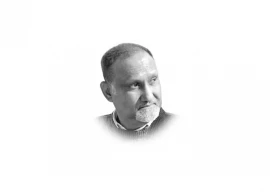
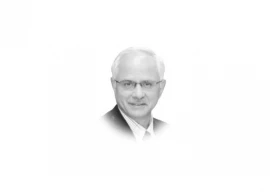
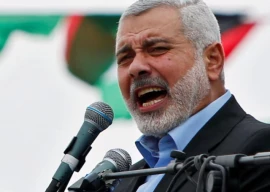

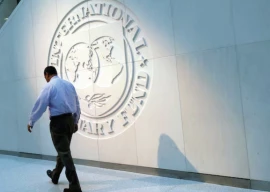
1722521491-0/Ryan-Reynolds-TJ-Miller-0002-(1)1722521491-0-270x192.webp)
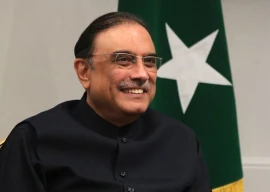
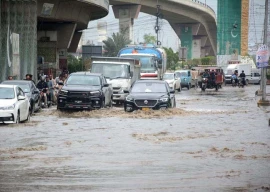


COMMENTS
Comments are moderated and generally will be posted if they are on-topic and not abusive.
For more information, please see our Comments FAQ